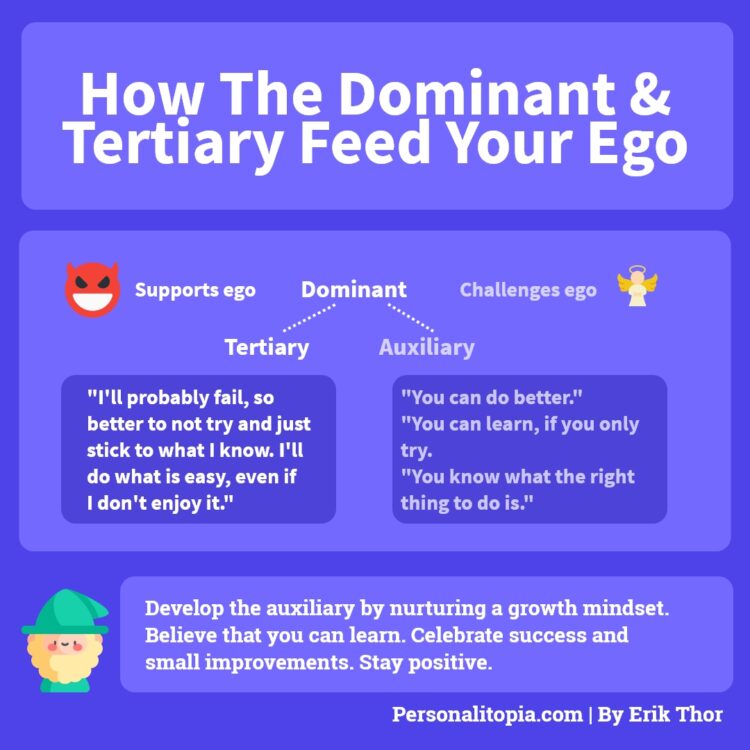The dominant and tertiary function provide you with an unholy alliance. The two functions feed into each others, and the tertiary can take over the dominant function, and distract your from your goals and core values. The tertiary function always offers the temptation of relief and reassurance. It validates your current thought patterns and your process. It makes you fall into a comfortable pattern, and at worst, it can drive you into a state of autopilot.
The Role Of The Tertiary Function
The tertiary function is not evil. At its best, its a tool you can use to be more successful in your goals. You should not be afraid to rely on the tertiary function. It can help you become better. It’s always good to work from your strengths and let your talents shine. But it can lull you into a comfortable routine, where you avoid anything challenging, or anything important, because it feels too difficult. If you hide behind your strengths, and avoid facing your weaknesses, you will never grow.
The tertiary in this way reinforces the ego. It keeps you from growing and makes sure that you stay the same way you always have. It makes you feel like you don’t need to change or do anything different, that you should keep going and stick to your plan or decision, even if you know that it’s not right, or even if you know it’s not ideal. Just because it’s familiar and easy.
How To Break The Tertiary Loop
Always aspire to be more than what you are. Do things not for yourself or to keep things the way they are, but do things because they are the right thing to do. Don’t let feelings or thoughts rule you or control you. Be mindful of how you think and what you feel and how it influences your decisions. Always keep setting new challenges for yourself. Keep your life interesting. Push yourself to try new things and go to new situations.
You break the tertiary loop by forcing your brain to experience new things and by going on adventures. The tertiary function is something different for each of the 16 personalities.

What is your tertiary function?
INFP & INTP: Introverted Sensing
ENFJ & ENTJ: Extroverted Sensing
ISTP & ISFP: Introverted iNtuition
ESTJ & ESFJ: Extroverted iNtuition
INTJ & ISTJ: Introverted Feeling
INFJ & ISFJ: Introverted Thinking
ENFP & ENTP: Extroverted Thinking
ENTP & ESTP: Extroverted Feeling

